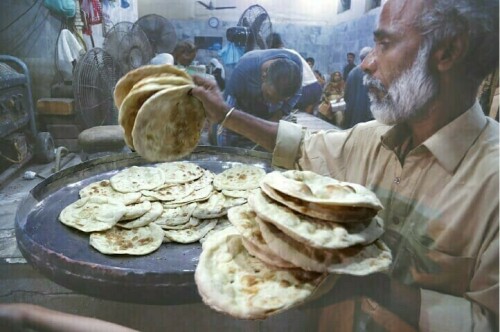ISLAMABAD: Pakistani agricultural institutions and scientists received $5.5 million from the US in 2011 to combat Cotton Leaf Virus but are yet to show any progress.
Dawn has learnt that the money came under the Pak-US Cotton Productivity Enhancement Programme (PUCPEP) for the local agriculture scientists to research and introduce new cotton seed varieties that fight off the infamous Cotton Leaf Curl Virus (CLCV) and increase production.
Every year, the virus destroys cotton produce equivalent to more than two million bales of cotton. It devastated Pakistan’s cotton industry in early 1990s when the crop yield was reduced by 35 percent.
In the wake of the disaster, thousands of varieties of cotton seed were imported from the US under the three-year cotton productivity enhancement programme, started in 2011, to conduct trials to fight the cotton virus. But much of the funds and efforts went into material acquisitions and foreign trips rather than into actual research, according to people close to the project.
A senior agricultural expert at the Pakistan Agriculture Research Council (PARC) claimed that some American experts had declared the project ‘doomed to fail’ even before it was launched. Their pessimism was based on the lack of resources, acumen and facilities that agricultural research organisations in Pakistan lacked for the kind of long-time research required to control the virus. US funds came under the Kerry-Luger Act as a goodwill gesture.
“However, the help also brought American cotton seed to Pakistan unlawfully,” said the PARC expert.
“There is a complete ban on import of cotton seeds into the countryunder Plant Protection Quarantine Act 1976.”
Yet, according to the expert, more than 3,000 cotton seed varieties have been imported into Pakistan.
The research project was brought into Pakistan through the International Centre for Agricultural Research in the Dry Area (ICARDA), which is playing the role of a liaison.
ICARDA has divided the project into 13 different smaller projects and allocated them to some of the best public research departments such as the National Institute of Biotechnology and Genetic Engineering (NIBGE) and Central Cotton Research Institute (CCRI) for molecular breeding, National University of Science and Technology (Nust) to study virus biodiversity and Centre of Excellence in Molecular Biology (CEMB), Punjab University for transformation of virus resistant source into locally available seed.
Agriculture experts in PARC had reasons to believe that rules were not followed when assigning these projects.
“We want to know why one private seed producing company has been assigned to develop cotton quality seed, which is not even relevant to the project especially when private multinational and national seed companies cannot be recipients of this fund according to rules. We want to know why other private seed producing companies have been ignored,” said another senior agriculture expert pointing out irregularities.
According to project details, available with Dawn, more money has gone into purchasing USBs, DVD and CDs, and other office paraphernalia, local and foreign trips under the garb of capacity building, generators, small trainings, workshops and unforeseen expenses etc, than what has actually been spent in improving farming practices of cotton growers.
ICARDA, which manages funding, has been allocating $30,000, later increased to $50,000 over the last three years, to the office of Cotton Commissioner, Ministry of Textile and Industry for mere coordination work. Some Pakistani agricultural scientists believe American taxpayers’ money could have gone into better research that could have helped Pakistan improve quality of its cotton industry.
In the last two years, trials have been conducted by CCRI, Ministry of Textile, in four locations in Multan and Sakrand to mention some, in open fields instead of a closed contained environment to prevent spread of inherited diseases in imported cotton seed to local cotton crop.
Cotton Commissioner, Ministry of Textiles, Dr Khalid Abdullah, who is also the focal person for the project, said that Pakistan was far from achieving desired results.
Country Manager, ICARDA, Dr Abdul Majid explained, how initial screening process of imported cotton seeds, to identify a gene that is resistant to the virus could take as long as three to four years. Explaining how, ICARDA was diversifying research into cotton industry, Dr Abdul Majid said, “Projects were distributed among research organisations after thorough deliberations and to the satisfaction of the donors.”
Dr Muhammad Arshad who is the consultant for the PUCPEP project and former Director CCRI, Multan, claimed that some resistant varieties had been identified but were far from ready for approval and commercialisation.
Published in Dawn January 19th , 2015
On a mobile phone? Get the Dawn Mobile App: Apple Store | Google Play














































